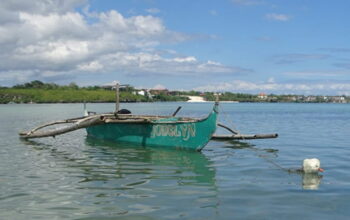
PROVINCIAL Board Member Nathanirl O. Binlod has proposed a Provincial Ordinance regulating the slaughter of carabao, or the poor man’s burden” in the province of Bohol.
“I move to pass on First Reading the Provincial Ordinance entitled: “An Ordinance Establishing Carabao Slaughter Regulations for Sustainable Recovery and Conservation in the Province of Bohol.”
BM Vencenzo Arcamo and BM Vierna Mae Boniel seconded the motion during the session of the Sangguning Panlalawigan last week and the said proposed measure was referred to the agriculture committee to which Bonlod is the chair.
Binlod pointed out the conservation and protection of our carabao population in his privilege speech. The proposal was apparently the outcome with urgency of the Agricultural and Fishery Council (AFC) Resolution recommendation.
“This recommendation is a crucial step toward preserving this vital resource that plays an indispensable role in the daily lives of our farmers and the agricultural sector of Bohol,” Binlod said.
He added, “For generations, carabaos have played a critical role in our farmlands, plowing fields, transporting goods, and contributing to food production in ways that are often undervalued. The carabao’s importance to agriculture is profound, especially for our province, where farming is a primary livelihood for many of our constituents.
In recent times, trends have raised concerns that an increasing number of carabaos being slaughtered, particularly during town fiesta celebrations and other festive occasions have dwindled their numbers. He said that he recognized the “cultural significance of these events, it is important that we consider prioritizing long-term agricultural sustainability.”
He said that the unabated slaughter of carabaos, especially during town fiestas, has led to a significant reduction in the carabao population.
“If we continue to allow the unsystematic slaughter of these carabaos, we will be depriving our agricultural sector of its primary resource for labor. Moreover, the slaughter of female carabaos, particularly those capable of reproduction or those carrying their young, will severely impact the natural reproduction rate of the species. This must be strictly regulated if we are to ensure that future generations of Boholanos will have the same access to this vital resource.”
Binlod, however, has yet to present the data on how many are slaughtered and what is the frequency of the butchering of carabaos.
The proposed measure, however, did not include the other livestock, such as cattle or cow, hogs and goats. (rvo)



